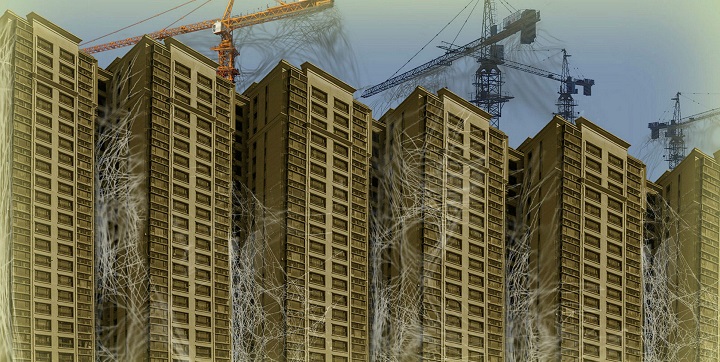
Essential changes are necessary in China but also complicated and risky. Then, the practical nature of the party looks at the unclear American political scene. It pushes Beijing to drag its feet and wait for a clearer horizon in Washington.
The Chinese Communist Party rules and holds power based on three legs. The first leg is, of course, self-interest, preservation of its own naked power. The second leg is the ideal/ideological content of the period and of the party, that is, Marxism and its revision of Marxism. The third leg is critical and affects the two other legs: the practical/utilitarian leg moves the party in different directions at different times.
In 1942, Mao Zedong, at the famous Yan’an conference, managed to make it a pillar of party politics. Through this, he managed to sideline and eventually oust the pro-Soviet faction through which Moscow hoped to control the Chinese Communist Party fully.
The principle is exemplified in the four-character shishi qiushi, seeking truth from facts, and this is an essential tenet of the party, so much so that the theoretical journal of the party is called Qiushi, “seeking truth.”
Of course, seeking the truth is not naked. It has to deal with two other elements: self-preservation and ideological principles. Mao himself put aside seeking truth in the late ’50s and ’60s when his officials blindsided him, and he didn’t believe his loyal lieutenants when he failed to acknowledge the failure of the Great Leap Forward and during the Cultural Revolution. Then, seeking the truth was, for all practical purposes, put out the window because purely ideological pulls and Mao’s self-preservation drove the country.
However, seeking the truth was the fundamental principle that moved the party to recognize the failures of the Cultural Revolution under Mao’s rule and try out the path of Reform and Opening Up.
Thus, this element has become the central pillar of the party in the past 40 years, and one aspect of that is that we have to seek the truth to make China powerful and strong; therefore, we shouldn’t be blinded by ideology and self-interest.
In this sense, it is crucial how the party reflects and thinks about the world and the successes and failures of other countries, first and foremost, of course, the United States, the present “hegemon” and the standard bearer of modernization and progress. It is the framework within which the present reflections on China’s national troubles and international situation moves.
Now, China is mired in enormous economic problems. Real estate, the main driver of growth in the past 25 years, is stuck. Banks are loaded with immense defaulting loans by real estate developers, some of which will never be repaid, and the rest of the loans are mostly bound with infrastructure with a meager and very long-term yield.
The Chinese banking system could be on the verge of virtual bankruptcy if it were not shielded by a not fully convertible currency, making a capital flight impossible and a massive foreign reserve to withstand possible financial turbulence.
Moreover, there are other long- and short-term concerns. Ten years of anti-corruption policies have sapped enthusiasm and activities from entrepreneurs who drove most of the growth. Now, they don’t know what to do, and they don’t feel their assets are safe. They used to live and act in symbiosis with their political mentors. Now, this mentorship is gone, but there is also no new way of development, so they are dragging their feet.
The middle class is also seeing that real estate is sagging. They are having cold feet because most of their savings are stuck in purchasing their apartments, and the real estate is not appreciating but depreciating. Therefore, they don’t consume or spend, making the situation worse.
Young people don’t know what to do; they are hoping for futures in the cities, but the big cities are too big and cannot grow any bigger. Still, these young people don’t want to go to the provinces, to the countryside, so what can they do? During most of Deng Xiaoping’s reforms, the officials were entrepreneurs in their own right, making money for themselves and the country. They are now confined to rigidly sanctioned roles and are not highly active.
The real estate sector should be reconsidered, and the whole growth mode for China should be based on internal private consumption.
But once the process is started, it will take years to come to fruition. Also, many people will need to be convinced, and possibly the keystone in these reforms is to ensure that the individual rights of entrepreneurs will be protected even against infringements by the party and the state. China would need political reform, maybe. First, the crux would be to put the party under the law and the law above the party. It is challenging; it would change the nature of China now and yet boost credibility domestically and externally.
An old crisis
This crisis was long seen coming. A 2007 essay[1] detailed the necessity to expand a social welfare system to free personal resources for consumption. The welfare should be funded by a new taxation system that entailed democratization. The failure to achieve it would bring a crisis around the year 2022, the essay argued. It was well before Xi Jinping came to power. The party didn’t act then, feeling smug and sure about the future, and now President Xi has to pick up the pieces.
The situation has degenerated, and intervening could be extraordinarily delicate and dangerous; thus, the party may ask whether this change is worth the risk. Is it worth putting at stake the self-interest of the party?
This is not a selfish and narrow-minded question because what the party sees about the United States is not a brilliant picture.
Democracy seems growingly tainted by elite groups managing to drive the consensus of the people through social media and artificial intelligence. They see the United States as politically and socially highly divided, with a right wing that follows some meaningless slogans. Some awkward extreme ideology besets the left wing.
While Chinese schools teach Latin and Greek classics and Western philosophy, American universities not only do not look at Chinese philosophy or Chinese classics, and they don’t learn their Western classics. And it is a deep, long-term element that, if not addressed, will worsen things.
Moreover, they see in the short term a lack of American leadership. President Joseph Biden appears physically not highly fit. On the one hand, there is Donald Trump, whose speeches are now becoming illogical. They are spouting insults at the enemies, but they make little sense. Trump went as far as openly calling on the possibility of civil war, assassination attempts, and vote rigging for the next elections. He almost called on the American people to appoint him by acclamation, forfeiting altogether the theatre of the vote.
On the other hand, it seems unlikely that Biden will manage to pull through a second presidential campaign, let alone a second term. The possibility of Trump becoming president and reshaping the whole set of presidential powers is also a sign of a deep crisis, and there is no third party.
In this situation, why would practical, pragmatic China change? What example should it follow? America doesn’t look like the knight in shining armor.
The American example, which at the beginning of the period of reforms and opening up was extremely important and leading the country in its changes, has become now almost impossible to follow, and many people are growing skeptical about the feasibility of America itself and the applicability of the American system to China.
Europe is not faring any better; it is extremely divided, and no country shows clear leadership. Germany is in crisis, France is moving back and forth, and possibly Emmanuel Macron will be ousted in the next presidential election. Nobody knows who will be the next president, maybe Marine Le Pen. But what kind of leadership will she exercise over Europe?
Japan or Korea is interesting, but certainly not an example China feels it can follow for many complicated reasons.
Taking time
In this situation, facing these tough and challenging choices, China may choose to kick the can down the road for at least a few months, hoping for some stop-gap measures that could revive the economy and keep it afloat for the time being—at least until the US presidential elections next year.
It is unclear, however, whether China has enough time to afford to put off essential reforms. The depth of the crisis of the internal consumption of real estate could create a landslide, moving international investors out of the Chinese market.
China does not have a fully convertible currency; therefore, there cannot be a significant capital flight that could crash the market, society, and, thus, politics. It also has vast reserves of over $3 trillion that could withstand many assaults on its financial systems.
Still, the situation could get wobbly because there is no clear indication of new massive moves in the economy, and as with Covid, panic could start to spread all of a sudden without warning.
Beijing is walking a tightrope, uncertain about what to do, but not for ideological problems alone. It would like to be cautious and decide what to do only after the United States decides on its next president. Then, it becomes clear whom to talk to.
Another element would be that, in the meantime, because American divisions are so profound, nobody rules out the possibility of uprisings and domestic fights that could flare up during the elections, maybe challenging the results, as Trump himself indicated.
America already had a civil war, and now it is not as dramatic as it was 160 years ago. Still, divisions are not to be trifled with because the US was never so crucial for the international balance of power.
The US divisions could create an opening in China. If the United States were to fall apart and be somehow derailed on its political path, then immediately, Chinese priorities would change because there would no longer be a necessity to move ahead fast with the dramatic reforms it needed. It would be a convenient and economical solution, shishi qiushi. This could be a way of reasoning in Beijing.
China could pace itself and wait out the American crisis. A third possibility is that the combination of tensions between the United States and China could bring the world to the brink of war or lead countries to war. This is a remote possibility so far, but it is real.
In the meantime, Beijing is also pacing itself. It has started a debt restructuring process, converting local short-term liabilities into long-term bonds to sell to depositors. It would not solve the problem entirely, but it could bring oxygen back to the country. It is pushing prominent entrepreneurs to be more proactive. We shall see if these measures are effective in a few months.
Beijing is also on the offensive on the diplomatic front, talking to everybody. It brokered peace between Iran and Saudi Arabia and offered a new framework to Central Asia Republics. It pushed BRICS to become a political alliance and dump the dollar in exchange for something else. Many of these actions may have a hard time being implemented. Despite all the hype, replacing the US dollar and the present financial system is hard to come by because it would exchange an existing faulty open market with putative arbitrary decisions by some governments. It’s all very uncertain.
Still, this flurry of actions could wade China through these difficult moments and get it to face the new US president at the end of next year.
The problem is that it is not a long-term strategy. They are ideas to bide time. During the first Cold War, the USSR offered a complete counter system to oppose “evil” capitalism. Choosing the USSR was not choosing Moscow but picking a possible ideal and systemic alternative to mal-functioning, unfixable capitalism.
Now, China doesn’t offer a comprehensive alternative to capitalism; it proposes a geopolitical substitute to the American malfunctioning leading role. It argues that China or Russia could be a better economic partner than the USA. Maybe so, but it’s not a paramount proposal like the Soviet one. And if China were to offer a comprehensive counterproposal, it would run into a whole array of new troubles.
Nevertheless, if practical party leaders don’t see a clear way forward if America is mired in unprecedented problems, they will likely stick to daily decisions. All of this and the ongoing war in Ukraine mean that the next year or so could become highly volatile.
[1] See “China’s Inevitables: Death, Taxes—and Democracy” in my China: In the Name of Law (2016).





